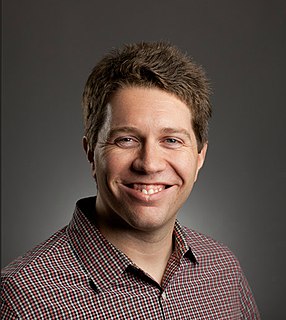A Quote by Robert Scoble
Facebook is looking to help you distribute content to who you want to distribute to. Facebook gets a lot better if you put each of your friends into either your 'close friend' or 'acquaintance' list.
Related Quotes
Every status update you read on Facebook, every tweet or text message you get from a friend, is competing for resources in your brain with important things like whether to put your savings in stocks or bonds, where you left your passport, or how best to reconcile with a close friend you just had an argument with.
The way the Facebook network is set up, it's not as suitable for content discovery. Twitter is better, but there are too many over-sharers. Also, on Twitter and Facebook, everything comes from people you know. On StumbleUpon, it comes from people that you don't necessarily know but share your interests.

































